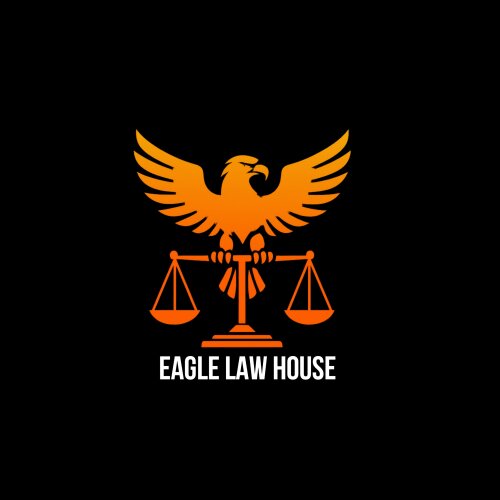Best Marriage Lawyers in Nigeria
Share your needs with us, get contacted by law firms.
Free. Takes 2 min.
Free Guide to Hiring a Family Lawyer
Or refine your search by selecting a city:
List of the best lawyers in Nigeria
Nigeria Marriage Legal Questions answered by Lawyers
Browse our 12 legal questions about Marriage in Nigeria and read the lawyer answers, or ask your own questions for free.
- I need more information on getting a marriage to be declared null and void since my partner is married in another country
- Can I get my marriage declared null and void if I find out my partner is married legally in another country
-
Lawyer answer by SJ Law Experts
**SJ Law Experts, Islamabad**Thank youSJ Law Experts, Islamabad [Advocates, Legal Advisors & Immigration Lawyers]
Read full answer - How much can cost me?
- Good morning. Im spanish and I would like marry with my girlfriend she is nigerian and she lives in Makurdi. We want a civil marriage. I read than this marriage can cost 50.000 nairas. How much money can cost me including your services?. And how much time we need for... Read more →
-
Lawyer answer by BUBA PARTNERS, BARRISTERS, SOLICITORS & NoTARIES
Dear [Name], Good morning, and thank you for your message. We would be pleased to assist you with your intended civil marriage in Nigeria. In Nigeria, a statutory (civil) marriage is conducted at the Federal Marriage Registry or a licensed...
Read full answer - My marriage has been separated for 9years now due to ill treatment and extended vfamily interaction
- My marriage has been separated for 9years now due to ill treatment and extended family interaction and my husband who has never felt the need to see his two children want to have joint custody of them or leaving them alone to visiting him on weekend, as their mother been... Read more →
-
Lawyer answer by Tents and Towers- Barristers & Solicitors
Hello.Having been separated for a period of more than 3 years, the court will certainly dissolve your marriage.However, the court has to resolve the issues of custody and maintenance of the children of the marriage. We can help you through...
Read full answer
About Marriage Law in Nigeria
Marriage in Nigeria is governed by a combination of statutory, customary, and religious laws, reflecting the country's diverse cultural and religious landscape. The statutory law, primarily encapsulated in the Marriage Act, provides the framework for civil marriages. Customary law recognizes marriages conducted according to ethnic customs, while Islamic law applies to marriages among Muslims. Understanding the applicable legal framework is essential for anyone intending to get married in Nigeria.
Why You May Need a Lawyer
Engaging a lawyer can be crucial in several marriage-related situations in Nigeria. Some common scenarios include:
- Marriage Registration: Legal guidance on fulfilling statutory requirements for civil marriage registration.
- Drafting Prenuptial Agreements: Protecting assets and clarifying financial expectations through legally binding agreements.
- Marital Disputes: Professional advice on mediation, separation, or divorce proceedings.
- Inheritance Issues: Ensuring fair distribution of assets according to legal provisions or Islamic law.
- Polygamous Marriages: Understanding rights and implications in customary or Islamic practices.
Local Laws Overview
Key aspects of marriage-related laws in Nigeria include:
- Statutory Marriage: Requires compliance with the Marriage Act, including age restrictions (18 years and above), mutual consent, and public ceremony.
- Customary Marriage: Governed by traditional practices, which vary among ethnic groups, but generally require family consent and symbolic rites.
- Islamic Marriage: Follows Sharia law principles for dowry (Mahr), consent, and marriage contract (Nikah).
- Recognition of Foreign Marriages: Marriages conducted abroad must be legally recognized under Nigerian law to have legal standing.
- Divorce and Annulment: Court proceedings vary depending on the type of marriage, with specific grounds required for dissolving a marriage.
Frequently Asked Questions
What is required for a statutory marriage in Nigeria?
You need to be at least 18 years old, have mutual consent, obtain a marriage license, and perform the marriage ceremony in a recognized church or registry.
Can a customary marriage be registered?
Yes, customary marriages can be registered with the local government to obtain a certificate legally recognizing the union under Nigerian law.
Is polygamy legal in Nigeria?
Polygamy is legal under customary and Islamic law, but not under statutory law. This means civil marriages generally do not permit polygamy.
What are the grounds for divorce in Nigeria?
Grounds include adultery, unreasonable behavior, desertion, separation, or irretrievable breakdown of the marriage, with specifics varying by marriage type.
How is property divided on divorce?
Property division is not equal by default and may depend on mutual agreement, court decision, and applicable legal framework (statutory, customary, or Islamic).
Can a foreigner marry a Nigerian in Nigeria?
Yes, foreigners can marry Nigerians provided they comply with Nigerian marriage laws, including obtaining the necessary marriage license.
Is a prenuptial agreement enforceable in Nigeria?
Yes, while not as common, prenuptial agreements are legally enforceable if signed willingly by both parties and comply with fairness standards.
Do customary and Islamic marriages have legal standing?
Yes, these marriages are recognized legally when conducted per traditional or religious guidelines and often require formal registration for additional legal benefits.
What is the legal age for marriage in Nigeria?
The legal age for marriage under the Marriage Act is 18 years. Customary and Islamic practices may lower the age, but statutory law sets a baseline of 18.
Can a marriage be annulled in Nigeria?
Annulments can occur if the marriage is voidable, such as cases involving incapacity, unsound mind, coercion, or absence of parental consent for minors.
Additional Resources
For more information, consider contacting the following resources:
- Federal Ministry of Justice: Provides access to legal information and services related to marriage.
- Nigerian Bar Association (NBA): Offers a directory of trained legal professionals specializing in family law.
- State Registry Offices: Provide assistance with marriage registration procedures.
- Nigerian Institute for Advanced Legal Studies: Offers educational resources on legal frameworks.
Next Steps
If you need legal assistance with marriage in Nigeria, consider the following steps:
- Consult a Lawyer: Reach out to a qualified lawyer specializing in family law for personalized advice and support.
- Gather Documentation: Prepare necessary documents such as birth certificates, identification, and any existing legal agreements.
- Engage with Local Authorities: Contact local registries or legal bodies for guidance on specific legal requirements or processes.
- Utilize Resources: Leverage supplementary resources for a better understanding of your rights and legal processes.
Lawzana helps you find the best lawyers and law firms in Nigeria through a curated and pre-screened list of qualified legal professionals. Our platform offers rankings and detailed profiles of attorneys and law firms, allowing you to compare based on practice areas, including Marriage, experience, and client feedback.
Each profile includes a description of the firm's areas of practice, client reviews, team members and partners, year of establishment, spoken languages, office locations, contact information, social media presence, and any published articles or resources. Most firms on our platform speak English and are experienced in both local and international legal matters.
Get a quote from top-rated law firms in Nigeria — quickly, securely, and without unnecessary hassle.
Disclaimer:
The information provided on this page is for general informational purposes only and does not constitute legal advice. While we strive to ensure the accuracy and relevance of the content, legal information may change over time, and interpretations of the law can vary. You should always consult with a qualified legal professional for advice specific to your situation.
We disclaim all liability for actions taken or not taken based on the content of this page. If you believe any information is incorrect or outdated, please contact us, and we will review and update it where appropriate.
Browse marriage law firms by city in Nigeria
Refine your search by selecting a city.
















